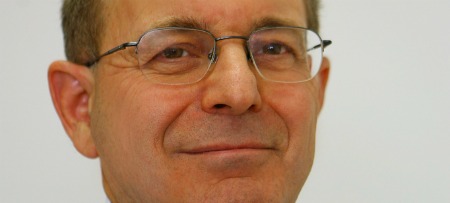Israel’s MacroCure helps the body heal itself with a unique product based on white blood cells from healthy donors.

The physical deterioration of old age and illness is often manifested in what doctors call chronic wounds – wounds that just will not repair themselves. Petah Tikvah-based MacroCure has a product that aims to do what the body can’t: Heal wounds that have festered for months, if not years.
CureXcell is unique in a number of ways, says Dr. Mitchell Shirvan, company CEO. “We believe that we have the most comprehensive approach to the problem of chronic wounds, showing a very significant reduction of the mortality rate in patients with deep sternal wound infections and a markedly improved healing rate for severe pressure ulcers.”
CureXcell is made with white blood cells from healthy donors, using a safe and natural resource. Most important, says Shirvan, “our product is on the market in Israel, and it has already been administered by physicians to over 4,500 patients with severe chronic wounds that would probably have remained with them for years.”
Boosting the self-repair process
The human body’s amazing ability to repair itself is a very complicated process. “There are several stages in the body’s self-repair process, and the first one – the inflammatory stage – is where many chronic wounds get hung up,” Shirvan explains.
A few decades ago, researchers discovered the efficacy of various substances, like collagen and growth factors, for helping along the natural process. But what works to treat one wound may not work for another.
“We decided that a product that could deal with a wide variety of wounds was needed,” says Shirvan. And that’s the approach of CureXcell. “We add the full complement of various cells that produce the cell messenger and growth factor molecules that might be missing as the body attempts to repair the wound, so if any of the necessary elements are missing, we have it covered. Our rate of success in patients treated in Israel shows that this product works and is safe.”
Instead of fabricating artificial replacements for the required chemicals, CureXcell uses what until not long ago was considered a waste product: the white blood cells that are extracted when an individual donates blood.
“Today, doctors only infuse red blood cells and plasma when they give blood transfusions, and the white blood cells are not typically used. But that is where the core capacity of the body’s ability to repair wounds is located,” says Shirvan.
“We take the healthy white blood cells, process them and transition the white blood cells to an activated state, and target the administration of the resulting CureXcell by injecting it into the layer of the healthy cells just below the damaged tissue. The body then uses the healthy cells and other components found in CureXcell and begins repairing the wound, so that chronic wounds that have remained open for months or years begin healing.”
The cells are safe, Shirvan adds. “We do all the tests that are done by blood banks for donors, and add on some other tests to insure product safety.”
Next market: North America
The technology for CureXcell was developed several years ago by Prof. David Danon of the Israeli national blood service, Magen David Adom, and has since been acquired by MacroCure, which enhanced the product’s development.
CureXcell has been approved for use by the Israeli Ministry of Health for the treatment of chronic wounds and was recently made a part of the Israel National Health Insurance list of reimbursable drugs.
“Our next step is to seek FDA and Health Canada approval,” says Shirvan. “Based upon clinical studies supporting the safety and effectiveness of CureXcell for chronic wounds in Israel, we have been allowed to proceed to the last stage of the developmental process for getting approval in the US, Phase III clinical testing.”
MacroCure anticipates receiving this approval in 2014 with completion of a successful program for the treatment of chronic lower-extremity ulcers in patients with diabetes, Shirvan says.
At corporate headquarters in Petah Tikvah, MacroCure’s 20 employees are further refining CureXcell and working on new treatments as well. The company, established in 2008, recently raised $26 million, $13 million of it in the last financing round led by Viola Private Equity, and Pontifax.
“We’ve received a substantial amount of interest from doctors, hospitals and HMOs in Israel,” says Shirvan. “Besides helping cure chronic wounds for patients, which can lead to a reduction in amputations and even save lives, we save money for health-care providers and systems. We expect to grow significantly over the coming years.”












